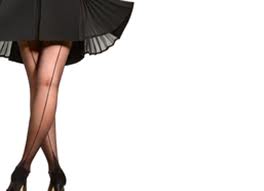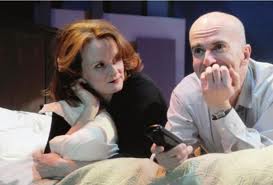
27 Mar TIO DENVER: “BECKY SHAW”AT CURIOUS THEATRE
Raise you hands if you have ever been in any of following situations:
• A blind date that went south in a hurry
• Shades of “Bridget Jones’s Diary,” dressed totally inappropriately for a major event
• Disappointment with a spouse
• Suspicious of a spouse’s real intentions with regard to a third party
• Difficulty making ends meet
• Misunderstood by a parent
• Life-changing illness
• Crossed boundaries with a close friend to test the waters on the other side
• Choosing a white lie over a harsh truth
• No good deed goes unpunished
 On our last day in Chile, we attended a storybook wedding: beautiful bride, handsome groom, stars in their eyes to match the dazzle of the southern sky. Flew out later that night and landed in Denver in time to attend a matinee at Denver’s Curious Theatre of a play about the next act: life.
On our last day in Chile, we attended a storybook wedding: beautiful bride, handsome groom, stars in their eyes to match the dazzle of the southern sky. Flew out later that night and landed in Denver in time to attend a matinee at Denver’s Curious Theatre of a play about the next act: life.
“Becky Shaw” is dark comedy written by the insightful and acerbic Gina Gionfriddo (of “Law & Order” fame) that touches upon all of the above leitmotifs from the ambitious symphony that defines the human condition, sour notes and all. If art is indeed a mirror of life, this one has lots of cracks.
The catalyst for the story is a blind date arranged by a newlywed couple Suzanna Slater (Rachel Fowler) and Andrew Porter (John Jurcheck), who fix up two romantically challenged friends: wife’s best friend Max Garrett (Bill Hahn) and husband’s strange new co-worker, Becky Shaw (Karen Slack). The set-up is summed up in the first few minutes and takes the form of a dress: Becky shows up for the date decked out for a prom in a garish confection of pink and rhinestones. Max takes one look and exclaims: “Wow. You look like birthday cake.” And Max, a major league misanthrope, is clearly allergic to sugar. The evening calculated to bring happiness goes predictably dark. How dark? The denouement involves a gun, a police station, and bad sex, followed by emotional manipulation, whispers of blackmail, and a suicide attempt.
The central question at the heart of the storm that is “Becky Shaw” turns on morals: What do we owe the people we love and the strangers who land on our doorstep, full surrender or a cup of tea and civil conversation, something unconditional or just something transactional? One secondary theme (gleaned from an author interview) is why we love who we love, the answer to which is another list, this one detailing our priorities. (Full disclosure: Suzanna’s choice of goody two shoes over the bad boy drove me nuts. Give me liberty or give me healthy cynicism and a wicked smile.)
Questions about class and money also come into, ahem, play. Suzanna’s family now headed by the recently widowed, sharp-tongued matriarch Susan, (Billie McBride) clearly represents the 1%, forced to relinquish their high card, wealth. In past, a problem like Becky might have been solved with a big fat check. In the post 2008 world, not so much. Darts of common sense replaces dollars and cents.
Try this one on for size. Susan, who has multiple sclerosis says: “You will never hear me buy into any of this New Age nonsense about my illness being a gift. It has ruined my life, and I hate it. But it was a gift to me in one respect. It meant I couldn’t leave my marriage.” (Which was not great, but worked.)
And this one about honesty in a relationship:
It is “a prescription for misery. It’s like those television commercials where they take a microscope into your kitchen and show you a lot of germs the naked eye can’t see.”
This tight, wonderful ensemble cast handles Gionfriddo’s darts with skill. Hats off to Fowler and Jurcheck, who play canvas to Hahn and Slack’s paint. The dance of these newlyweds is of necessity a tentative pas de deux in which the partners must be on their toes at all times, calculating their next move as unexpected twists and turns in personality throw them off balance. McBride is sensational as the voice of reason, the play’s ballast. And Slater does a fine job as Becky Shaw, the story’s antihero. Her evolution from shrinking violet to a rose with thorns happens organically not suddenly. Becky Shaw is a distant relative of Thackery’s Becky Sharp (of “Vanity Fair”), only a far less seductive (at least at first blush) social climber and way less cynical (ditto). But like her 19th-century cousin, Slater’s Becky is ultimately sympathetic. (Check your reflection in the mirror as I did. Who among us has never felt desperate or alone?)
I liked them all, but loved Hahn. The afternoon belonged to his Max who plays it like Bill Maher, snarky, charming, unedited, politically incorrect as he tries to juggle all the guests on his “program.” Hahn’s Max is an awful man we can’t help loving. Like Listerine: Not nice. But necessary.
Directed by Chip Walton, “Becky Shaw” runs through April 20. Curious Theatre is at 1080 Acoma Street, two blocks south of the Denver Art Museum. Call 303-623-0524 or boxoffice@curioustheatre.org.



Sorry, the comment form is closed at this time.